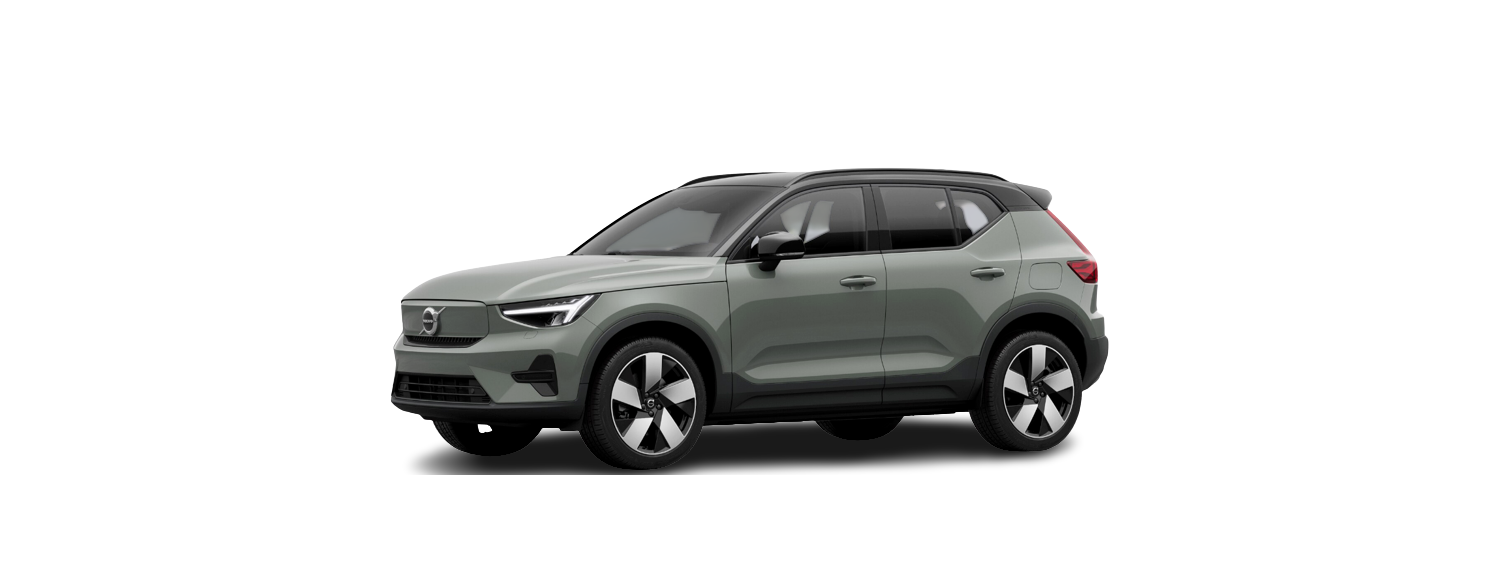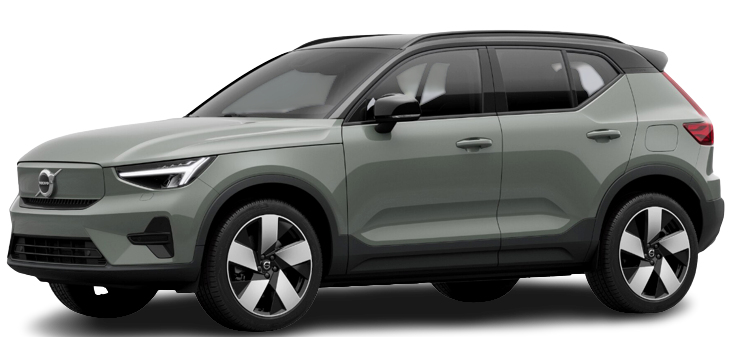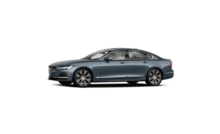- Press in the panel hatch at the upper edge to detach it.
- Move the insulation aside to access the supporting bridge.
- Unscrew and remove the spring bolt anticlockwise, press the clips into the sides and remove the supporting bridge. It is easiest to allow the screw to remain in the supporting bridge.
- Undo the grey bulb holder by turning it anticlockwise and pulling it out.
- Remove the bulb by pressing it in and turning it anticlockwise.
- Fit a new bulb by pressing it in and turning it clockwise.
- Attach the bulb holder by turning it clockwise.
- Fit the supporting bridge with the associated spring bolt and make sure that the clips align in the correct position. Tighten the spring bolt until it stops, max. 2 Nm (1.5 ft-lbs).
- Move back the insulation and then hook in the panel and press it back into place.
Never touch the glass part of the bulbs with your fingers. Grease from your fingers is vaporized by the heat, coating the reflector and then causing damage.
Note
Outside lighting such as headlamps and rear lamps may temporarily have condensation on the inside of the lens. This is normal and all exterior lighting is designed to withstand this. Condensation is normally vented out of the lamp housing when the lamp has been switched on for a time.
Changing the brake light bulb
- Move the insulation aside to access the brake light bulb.
- Undo the black bulb holder by turning it anticlockwise and pulling it out.
- Remove the bulb by pressing it in and turning it anticlockwise.
- Fit a new bulb by pressing it in and turning it clockwise.
- Attach the bulb holder by turning it clockwise.
- Move back the insulation and then hook in the panel and press it back into place.
Never touch the glass part of the bulbs with your fingers. Grease from your fingers is vaporized by the heat, coating the reflector and then causing damage.
Outside lighting such as headlamps and rear lamps may temporarily have condensation on the inside of the lens. This is normal and all exterior lighting is designed to withstand this. Condensation is normally vented out of the lamp housing when the lamp has been switched on for a time.
Replacing the rear fog lamp bulb
- Loosen the foglight unit on the driver’s side by inserting a flat object, such as a table knife or a screwdriver, on the bulb kit’s narrower short side of the keypad and then prize the foglight unit out.
Unplug the connector. - Undo the bulb holder by turning it anticlockwise and pulling it out.
- Remove the bulb by pressing it in and turning it anticlockwise.
- Fit a new bulb by pressing it in and turning it clockwise.
- Attach the bulb holder by turning it clockwise.
- Plug in the connector.
- Insert the hook on the wide part of the foglight unit in the rear bumper and rotate the unit inwards so that the clips engage.
Note
Outside lighting such as headlamps and rear lamps may temporarily have condensation on the inside of the lens. This is normal and all exterior lighting is designed to withstand this. Condensation is normally vented out of the lamp housing when the lamp has been switched on for a time.
Bulb replacement
For information about bulbs not covered in this Owner’s Manual, contact a Volvo dealer or an authorized Volvo workshop.
The car’s electrical system must be in ignition position 0 when replacing bulbs.
Never touch the glass part of the bulbs with your fingers. Grease from your fingers is vaporized by the heat, coating the reflector and then causing damage.
If an error message remains after the broken bulb has been replaced then we recommend visiting an authorized Volvo workshop.
Outside lighting such as headlamps and rear lamps may temporarily have condensation on the inside of the lens. This is normal and all exterior lighting is designed to withstand this. Condensation is normally vented out of the lamp housing when the lamp has been switched on for a time.
Exterior lamp positions
Lamps, front
- Main beam/dipped beam (LED)
- Daytime running lights/position lamps/direction indicators (LED)
- Reflector for main and dipped beam (LED)
- Front fog lamps (LED)
Lamps, rear
- Brake light – central, high-level (LED)
- Fog lamp
- Position lamps (LED)
- Direction indicators
- Brake lights
- Reversing lamps (LED)
Bulb specifications
Contact a workshop if faults occur in lamps other than bulbs. If a fault occurs in LED lamps, the entire lamp unit usually must be replaced.
| Function | W | Type |
|---|---|---|
| Rear direction indicators | 24 | PY24W |
| Brake lights | 21 | H21W LL |
| Rear fog lamp | 21 | H21W LL |
Checking trailer lamps
Checking trailer lamps
Automatic checking
- After a trailer is connected electrically, it is possible to check that the trailer lamps are working via an automatic lamp activation. The function helps the driver check that the trailer lamps are working before starting off.
- The car must be switched off to perform the check.
- When a trailer is connected to the towbar, the Automatic Trailer Lamp Check message is shown in the driver display.
- Confirm the message by pressing the right-hand steering wheel keypad’s O button.
- The lamp check starts.
- Exit the car to check lamp functionality.
- All trailer lamps start to flash – then the lamps are switched on one at a time.
- Visually check that all lamps available on the trailer are operational.
- After a moment, all lamps on the trailer flash again.
- The check is complete.
Switching off automatic checking
- The automatic checking function can be switched off in the center display.
- Press Settings in the top view.
- Press .
- Deselect Automatic Trailer Lamp Check.
Manual checking
- If the automatic checking is switched off then it is possible to start the check manually.
- Press Settings in the top view.
- Press .
- Select Manual Trailer Lamp Check.
- The lamp check starts. Exit the car to check lamp functionality.
Rear fog lamp on the trailer
When connecting the trailer, the rear fog lamp may not light up on the car. In such cases, the rear fog lamp function switches to the trailer. Upon activation of the rear fog lamp, check therefore that the trailer is equipped with a rear fog lamp to travel safely.
Symbols and messages in the driver display
If one or more of the trailer’s direction indicators or brake light bulbs is broken, the driver display shows a symbol and a message. Other lights on the trailer must be checked manually by the driver before setting off.
| Symbol | Message |
|---|---|
| |
|
| |
|
If any lamp for the trailer’s direction indicators is broken, the driver display symbol for direction indicators will also flash more quickly than normal.




